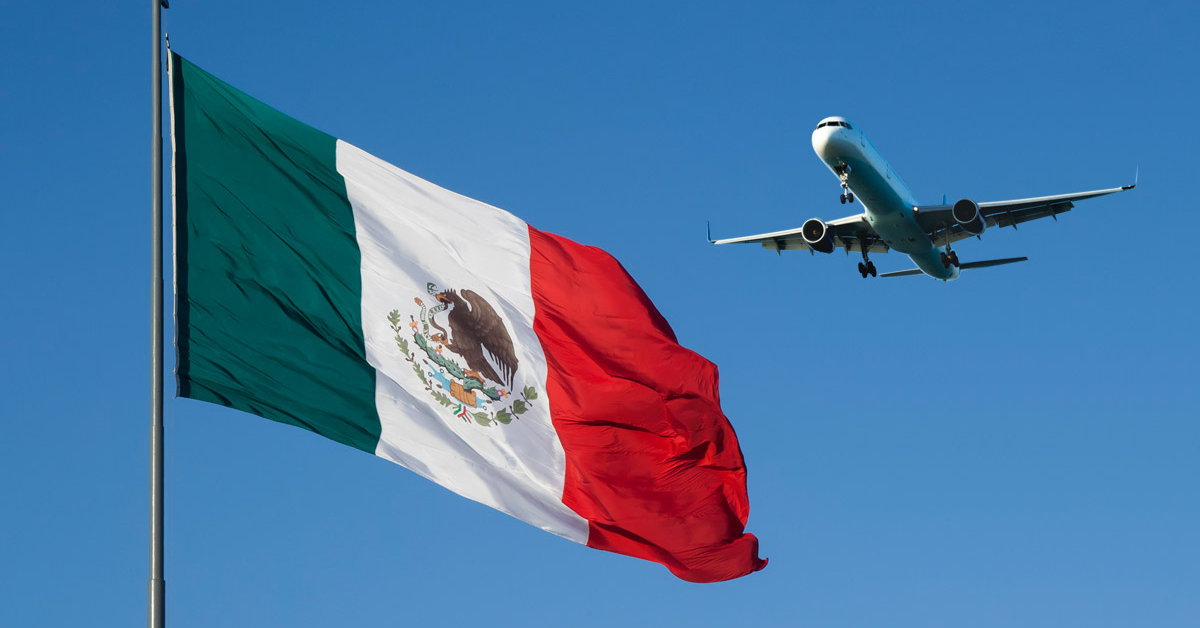Puerto Vallarta (PVDN) - If 'cabotage' is authorized in Mexico, that is, allowing foreign airlines to operate flights between two destinations in Mexico, it would cause the price of plane tickets to increase and the closure of Mexican airlines, warned the National Chamber of Aerotransports (Canaero ).
The private association, which brings together 45 members including airlines, cargo companies, and air taxis, warned of the possible consequences of reforming the Aviation and Airport Laws to allow cabotage, which is currently under discussion in Mexico's congress.
They indicated that almost 80% of the passengers who moved within . . .
CONTINUE READING THIS NEWS ARTICLE BY BECOMING A PVDN SUBSCRIBER!
>> SUBSCRIBE TO OUR NEWS ON WHATSAPP CHANNELS HERE (FROM YOUR CELL PHONE!)<<
Popular posts:
 Crocodile Fatally Run Over in Nuevo Vallarta, Nayarit In a tragic incident highlighting the complex coexistence between urban development and wildlife, a nearly two-meter-long crocodile met its demise after being struck by a vehicle on one of the main avenues of Nuevo Vallarta, Nayarit. The unfortunate victim, identified as a 1.9-meter-long male juvenile crocodile with the registration number 3,090, suffered fatal injuries in…
Crocodile Fatally Run Over in Nuevo Vallarta, Nayarit In a tragic incident highlighting the complex coexistence between urban development and wildlife, a nearly two-meter-long crocodile met its demise after being struck by a vehicle on one of the main avenues of Nuevo Vallarta, Nayarit. The unfortunate victim, identified as a 1.9-meter-long male juvenile crocodile with the registration number 3,090, suffered fatal injuries in… Purple Flags Raised on Puerto Vallarta Beaches as Jellyfish Presence Prompts Safety Measures Puerto Vallarta, Mexico - In response to the emergence of jellyfish in the waters off Puerto Vallarta's coast, Civil Protection personnel and Lifeguard Firefighters took precautionary measures on Monday by placing purple flags on four prominent beaches. The decision, aimed at safeguarding beachgoers, signals restricted access to swimming areas and water-based recreational activities. The purple…
Purple Flags Raised on Puerto Vallarta Beaches as Jellyfish Presence Prompts Safety Measures Puerto Vallarta, Mexico - In response to the emergence of jellyfish in the waters off Puerto Vallarta's coast, Civil Protection personnel and Lifeguard Firefighters took precautionary measures on Monday by placing purple flags on four prominent beaches. The decision, aimed at safeguarding beachgoers, signals restricted access to swimming areas and water-based recreational activities. The purple…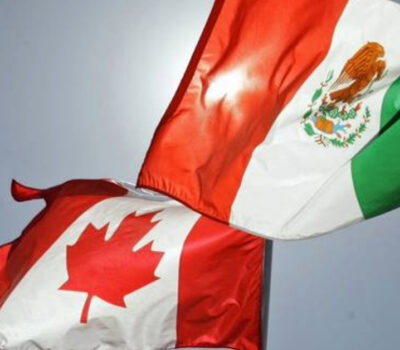 Puerto Vallarta Sees Surge in Canadian Tourists, Targets Increased Connectivity Puerto Vallarta, Mexico - Amidst the breathtaking backdrop of its azure beaches and vibrant culture, Puerto Vallarta has witnessed a substantial influx of Canadian tourists during the initial months of this year. Surpassing the 160,000 mark, the city has emerged as the second-most favored destination in Mexico among its northern neighbors. Data disclosed by the…
Puerto Vallarta Sees Surge in Canadian Tourists, Targets Increased Connectivity Puerto Vallarta, Mexico - Amidst the breathtaking backdrop of its azure beaches and vibrant culture, Puerto Vallarta has witnessed a substantial influx of Canadian tourists during the initial months of this year. Surpassing the 160,000 mark, the city has emerged as the second-most favored destination in Mexico among its northern neighbors. Data disclosed by the…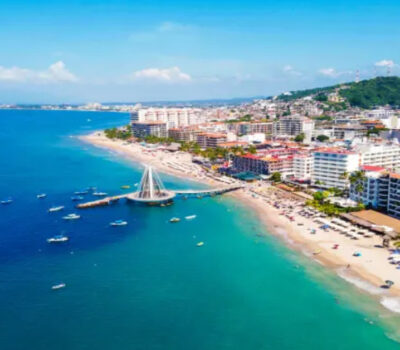 Mexico Ranks Third in International Living Magazine’s 2024 Best Places to Retire Guide Puerto Vallarta, Mexico - International Living Magazine, renowned for its comprehensive coverage of retirement destinations worldwide, has unveiled its highly anticipated annual guide to the best places to retire in 2024. Among the top ten countries listed, Mexico secures a prominent position, affirming its status as a dream destination for retirees seeking a fulfilling lifestyle.…
Mexico Ranks Third in International Living Magazine’s 2024 Best Places to Retire Guide Puerto Vallarta, Mexico - International Living Magazine, renowned for its comprehensive coverage of retirement destinations worldwide, has unveiled its highly anticipated annual guide to the best places to retire in 2024. Among the top ten countries listed, Mexico secures a prominent position, affirming its status as a dream destination for retirees seeking a fulfilling lifestyle.…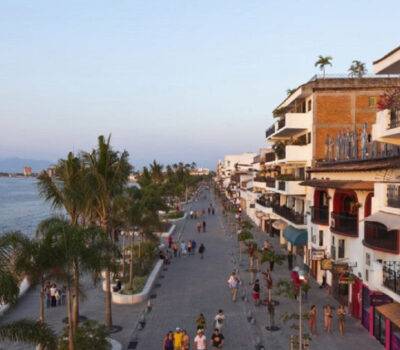 Influx of International Tourists to Puerto Vallarta Soars by Nearly 10% in Early 2024 Puerto Vallarta, Mexico - The renowned beach destination of Puerto Vallarta has witnessed a significant surge in international tourism, with arrivals by air surging by almost 10% during the initial four months of 2024. Data provided by Grupo Aeroportuario del Pacífico (GAP), the concessionaire of Puerto Vallarta International Airport, reveals a promising uptick in visitor…
Influx of International Tourists to Puerto Vallarta Soars by Nearly 10% in Early 2024 Puerto Vallarta, Mexico - The renowned beach destination of Puerto Vallarta has witnessed a significant surge in international tourism, with arrivals by air surging by almost 10% during the initial four months of 2024. Data provided by Grupo Aeroportuario del Pacífico (GAP), the concessionaire of Puerto Vallarta International Airport, reveals a promising uptick in visitor… High-Speed Chase in Puerto Vallarta from Conchas Chinas to Puerto Magico Ends in Arrest Puerto Vallarta, Mexico - In a scene reminiscent of an action movie, the streets of Puerto Vallarta, Jalisco, became the stage for a dramatic pursuit on Thursday night, as law enforcement officers engaged in a high-speed chase with a reckless driver, leading to collisions with patrol cars and private vehicles, culminating in a confrontation with…
High-Speed Chase in Puerto Vallarta from Conchas Chinas to Puerto Magico Ends in Arrest Puerto Vallarta, Mexico - In a scene reminiscent of an action movie, the streets of Puerto Vallarta, Jalisco, became the stage for a dramatic pursuit on Thursday night, as law enforcement officers engaged in a high-speed chase with a reckless driver, leading to collisions with patrol cars and private vehicles, culminating in a confrontation with… Puerto Vallarta Gears Up for Thrilling 34th Edition of the International Sports Classic Puerto Vallarta, Mexico - Puerto Vallarta is set to welcome athletes and sports enthusiasts from across North and South America for the much-anticipated Puerto Vallarta International Sports Classic 2024. Commencing on May 2nd and running through May 5th, this annual sporting extravaganza promises to be an unforgettable experience for participants and spectators alike. Since its…
Puerto Vallarta Gears Up for Thrilling 34th Edition of the International Sports Classic Puerto Vallarta, Mexico - Puerto Vallarta is set to welcome athletes and sports enthusiasts from across North and South America for the much-anticipated Puerto Vallarta International Sports Classic 2024. Commencing on May 2nd and running through May 5th, this annual sporting extravaganza promises to be an unforgettable experience for participants and spectators alike. Since its…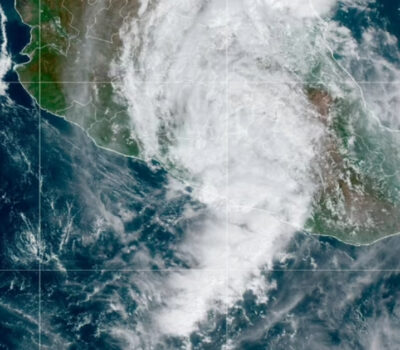 Conagua Forecasts 2024 Hurricane Season with Up to 41 Systems, 9 Potentially Dangerous Puerto Vallarta, Mexico - As the countdown to Mexico's 2024 hurricane season begins, the National Water Commission (Conagua) issues a stark warning, forecasting a potentially tumultuous period ahead. With just 8 days remaining before the season's commencement, Conagua's latest report reveals alarming projections for both the Pacific and Atlantic Oceans. During a crucial meeting with…
Conagua Forecasts 2024 Hurricane Season with Up to 41 Systems, 9 Potentially Dangerous Puerto Vallarta, Mexico - As the countdown to Mexico's 2024 hurricane season begins, the National Water Commission (Conagua) issues a stark warning, forecasting a potentially tumultuous period ahead. With just 8 days remaining before the season's commencement, Conagua's latest report reveals alarming projections for both the Pacific and Atlantic Oceans. During a crucial meeting with…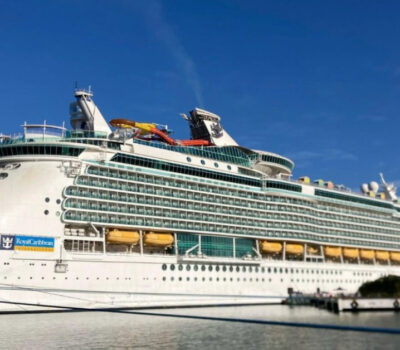 Puerto Vallarta Will Welcome 10 Cruise Ships in May Puerto Vallarta, Mexico - As the calendar flips to May, Puerto Vallarta eagerly anticipates the arrival of ten cruise ships, poised to bring a wave of international tourists and significant economic prosperity to the city. The maritime festivities commenced on Wednesday, May 1st, with the grand entrance of the Celebrity Summit, a colossal vessel stretching…
Puerto Vallarta Will Welcome 10 Cruise Ships in May Puerto Vallarta, Mexico - As the calendar flips to May, Puerto Vallarta eagerly anticipates the arrival of ten cruise ships, poised to bring a wave of international tourists and significant economic prosperity to the city. The maritime festivities commenced on Wednesday, May 1st, with the grand entrance of the Celebrity Summit, a colossal vessel stretching… Puerto Vallarta Celebrates Cultural Exchange at FESTVA 2024 With Doll Exhibition Puerto Vallarta, Mexico - In a vibrant display of cultural unity, Puerto Vallarta welcomed participants from across the globe to the 18th edition of the Vallarta Azteca Festival of International Folklore (FESTVA) 2024. Councilor Pablo Ruperto Gómez Andrade, expressing the city's pride in its reputation as one of the friendliest in the world, inaugurated the…
Puerto Vallarta Celebrates Cultural Exchange at FESTVA 2024 With Doll Exhibition Puerto Vallarta, Mexico - In a vibrant display of cultural unity, Puerto Vallarta welcomed participants from across the globe to the 18th edition of the Vallarta Azteca Festival of International Folklore (FESTVA) 2024. Councilor Pablo Ruperto Gómez Andrade, expressing the city's pride in its reputation as one of the friendliest in the world, inaugurated the…

